Looking for the best perennials to grow in the shade portions of your yard? While most plants thrive in full sun, there are a few plants that actually need shade in order to grow and flourish. And today, we showcase 6 such shade loving plants perfect for growing in the less-sunny areas of your landscape.
Whether your given location is underneath a large tree canopy, beside a tall barn, or just a location that only gets late-day partial sun, you can find excellent perennials to grow. Some are enjoyed because of their lush foliage, while others even produce beautiful blooms with pops of color.
With that in mind, here are 6 excellent choices for the shady areas of your landscape:
The Best Perennials To Grow In The Shade
Bleeding Heart
This cool-weather plant produces beautiful, heart-shaped blooms that drop down individually from the stem. Each bleeding heart plant can produce around 20 pink, red, or white blooms per stem. The blooms appear during the spring and early summer months.
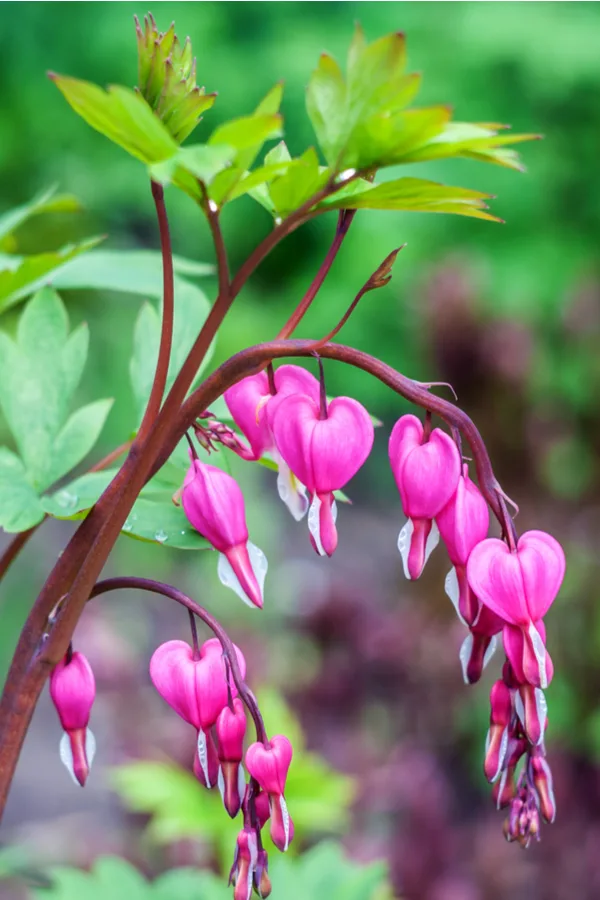
Bleeding hearts require a neutral soil pH and should be located in a place where strong winds won’t be an issue. They are self-seeders but they rarely need divided. In fact, they prefer not to be moved.
They can grow to be anywhere from 6 inches to 3 feet tall. Bleeding hearts are hardy in growing zones 3-9. (You can find your growing zone Here.)
Once bleeding hearts have finished blooming, their flowers and foliage will start to die off as the plant goes dormant. In their absence, you can plant other flowering annuals in the same location to prolong your growing season.
Lilyturf
Also called liorope, lilyturf is an excellent ground cover or edge plant grown in shady locations. Its attractive foliage features broad-like, grassy leaves in striped green colors. During the late summer and early fall, they produce tall shoots of purple and white blooms.
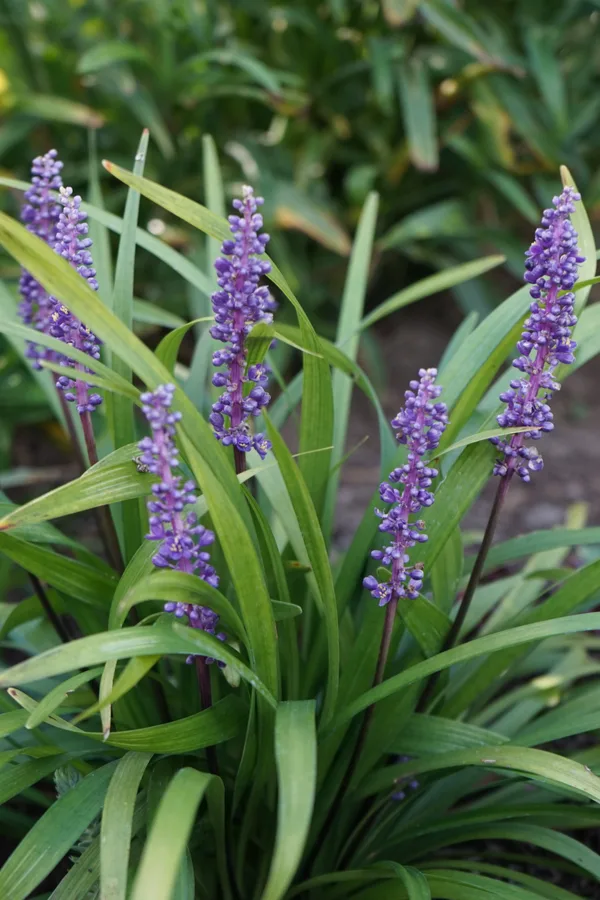
Lilyturf requires a slightly acidic to neutral pH of 6.0 to 7.0 and should be located where it receives partial shade. It grows around 6 to 12 inches tall and each plant can be up to two feet wide.
In growing zones 5-10, lilyturf can be kept in-ground year-round. For colder climates, it will need to be brought indoors during the winter months and displayed as a houseplant.
Hostas
Hostas are one of the most popular choices for beautiful perennials to grow in the shade. They make excellent choices for building borders or even around the trunks of mature trees. Their broad leaves feature a range of greens, whites, and even blue shades, often in variegated patterns.
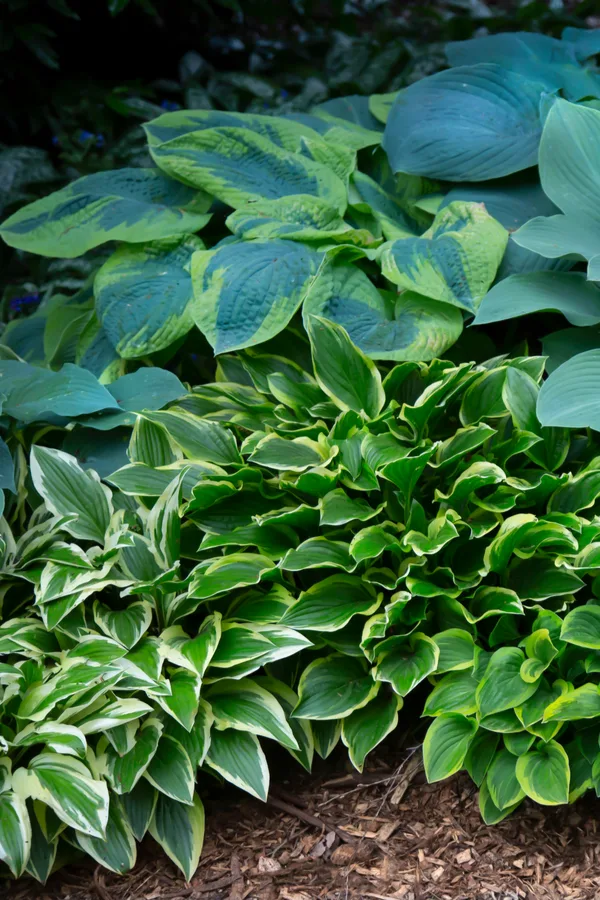
Although hostas do produce flowers, they can be rather unattractive and can actually take away from the beauty and energy sent to the plant’s foliage. Many gardeners prefer to prune off any flowers for this reason.
Hostas prefer a soil pH of around 6.0 to 6.5 and grow best in locations with full shade. There are many varieties that can range in size from as small as a foot wide to up to 6 foot or wider!
Hostas are hardy in growing zones 3-9 and are easily divided and transplanted to different locations. Check out this article on “How To Keep Hostas Healthy” to see how to easily keep your hostas vibrant and strong.
Hellebore
This plant is a herbaceous perennial that blooms in the early spring. The blooms are long lasting and can be seen from late winter until mid-spring. Hellebore features evergreen foliage and drooping blooms that have 5 wide petals in colors of white, pink, purple, and sometimes yellow.
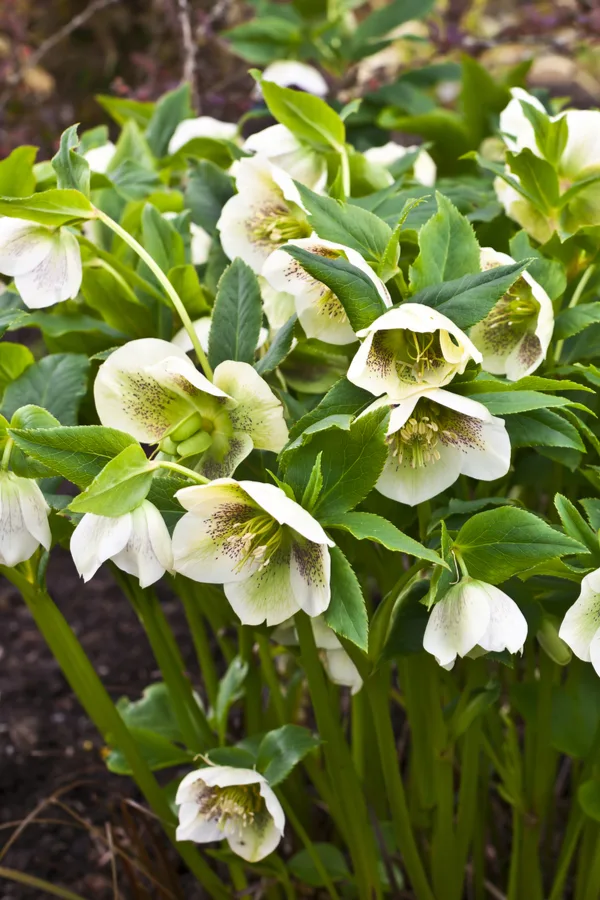
Hellebore requires a soil pH of 7.0 to 8.0 and needs partial shade to even full shade to really flourish. They can grow up to 2 feet tall as well as 2 feet wide.
They have a hardiness zone of 4-9, but varies on the specific species of hellebore. While they are self-seeding plants, make sure to thin new seedlings so they do not suffer from overcrowding.
Astilbe
Also known as the funny name of “false goat’s beard,” astilbe is a great perennial to grow in the shade. It features fern-like, dark green foliage and sends up tall, almost fluffy blooms in soft shades of white, pink, purple, and red. Their blooms are long lasting, arriving in the early summer and lasting until late fall.
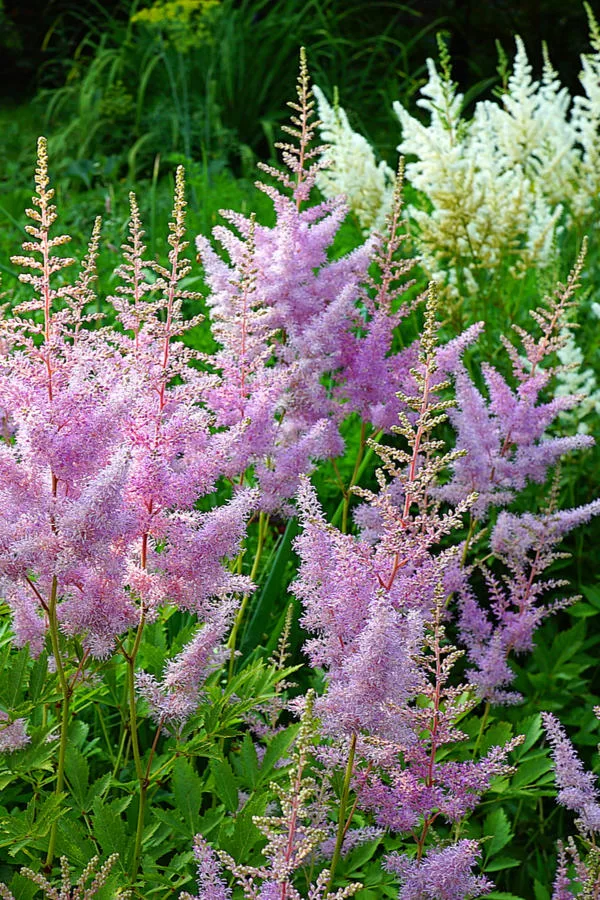
They require a soil pH of around 6.0 and need partial to full shade. They grow anywhere from 6 inches to 2 feet tall and can spread from 6 inches to over 5 feet in width depending on the variety. Even though their blooms can be rather tall, they do not require staking since the stems are rather thick.
Astilbes have a growing zone of 3-9. This perennial will need to be divided every 3-4 years to prevent overgrowth. This will also help the plant to continue to produce vibrant blooms each season.
Wild Ginger
Despite its name, wild ginger has no connection to the ginger that you find in local grocery stores. Grown in the Eastern part of the United States, wild ginger features large kidney-shaped leaves.
Their blooms arrive in the late spring/early summer months and appear almost hidden under the canopy of leaves. They are small, bell-shaped blooms in the colors of dark red, almost brown.
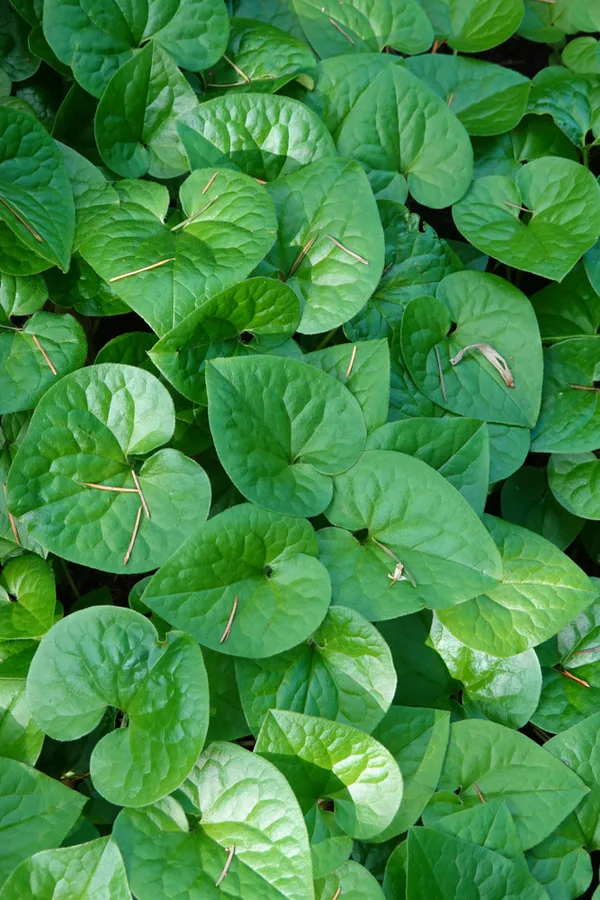
Wild ginger prefers a soil pH of 5.0 to 6.0 and thrives in moist, woodland-like locations such as under trees. The plant grows from creeping rhizomes and spreads easily.
It has a hardiness zone of 3-7 and makes an excellent ground cover. Be cautious though because it can expand up to 6 to 8 inches in all directions each year once it is established in its location.
To Conclude…
Just because your particular growing location has several places where the sun can’t reach doesn’t mean you can’t still enjoy beautiful plants. Any of the above-mentioned perennials are an excellent choice to grow in the shade – No sun required!
Follow Our Facebook Page For Even More Great Tips! Simple Garden Life Facebook Page
Simple Garden Life is a website dedicated to keeping gardening fun, simple and enjoyable! We publish two new articles each week along with a new garden podcast episode every two weeks. This article may contain affiliate links.
